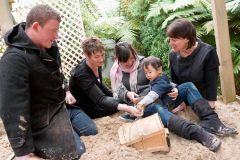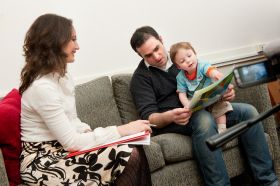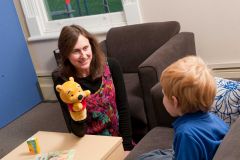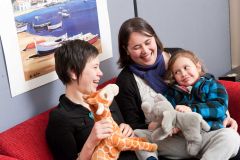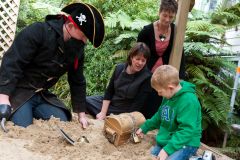There are times when it is important for adults to interview children about their experiences. For example, adults need to talk to children in legal settings, if the child is a victim of a crime, or has witnessed a crime. In these cases, the information that children provide needs to be accurate.
In our lab, we have shown that one interview technique that helps children to talk about their experiences, without affecting accuracy, is drawing. In our research, children are given clear instructions to both draw and talk about a specific event that is the subject of the interview. In real-life interviews, children are sometimes allowed to draw about whatever they want, while being interviewed about a specific event. Given that drawing can be a playful activity, we were concerned that allowing children to draw freely during an interview might cause them to treat the interview playfully, and to report inaccurate information.
To test this idea, we took 5- and 6-year-old children on a boat trip around Dunedin harbour. One or two days after the trip, we asked the children to tell an interviewer about the trip. Some children were given drawing materials to use during the interview. Of these children, some were instructed to use the materials to draw specifically about the boat trip, and some children were given no explicit instructions at all about what to draw; these children were told that they could draw whatever they wanted.
Consistent with prior research, children who were directed to draw specifically about the boat trip, or who simply told about the trip, reported relatively accurate information. Compared to children in the other conditions, when children drew without direction, they reported more errors.
Concerningly, many of these errors were extraordinary, impossible, or fantasy-based (e.g., children reported that they had travelled overseas with teachers, seen mermaids, or ridden on dolphins). If children made such extraordinary claims in real interviews, they could lead to costly investigations, and unwarranted charges.
Our research highlights that, if interviewers use drawing in interviews with children, to maximise accuracy, the interviewers need to instruct children to draw specifically and only about the event that they are being asked to describe.
Back to Baby Scientists
